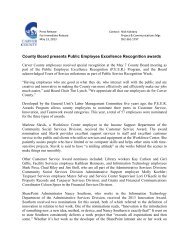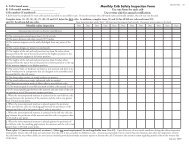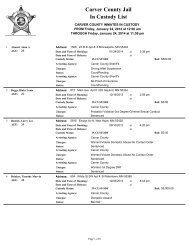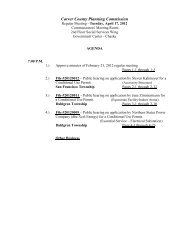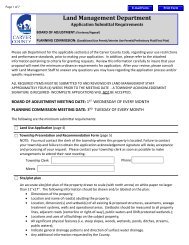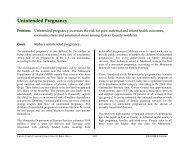Older Adults and Depression - NIMH - National Institutes of Health
Older Adults and Depression - NIMH - National Institutes of Health
Older Adults and Depression - NIMH - National Institutes of Health
You also want an ePaper? Increase the reach of your titles
YUMPU automatically turns print PDFs into web optimized ePapers that Google loves.
were younger are more at risk for developing depression<br />
in late life than those who did not have the illness earlier<br />
in life.<br />
Brain chemistry—people with depression may have<br />
different brain chemistry than those without the illness.<br />
Stress—loss <strong>of</strong> a loved one, a difficult relationship, or any<br />
stressful situation may trigger depression.<br />
For older adults who experience depression for the first<br />
time later in life, the depression may be related to changes<br />
that occur in the brain <strong>and</strong> body as a person ages. For<br />
example, older adults may suffer from restricted blood<br />
flow, a condition called ischemia. Over time, blood vessels<br />
may stiffen <strong>and</strong> prevent blood from flowing normally to<br />
the body’s organs, including the brain.<br />
If this happens, an older adult with no family history <strong>of</strong><br />
depression may develop what is sometimes called “vascular<br />
depression.”Those with vascular depression also may be<br />
at risk for heart disease, stroke, or other vascular illness.<br />
<strong>Depression</strong> can also co-occur with other serious medical<br />
illnesses such as diabetes, cancer, heart disease, <strong>and</strong><br />
Parkinson’s disease. <strong>Depression</strong> can make these conditions<br />
worse, <strong>and</strong> vice versa. Sometimes, medications taken<br />
for these illnesses may cause side effects that contribute<br />
to depression.A doctor experienced in treating these<br />
complicated illnesses can help work out the best treatment<br />
strategy.<br />
How is depression treated?<br />
The first step to getting appropriate treatment is to visit<br />
a doctor. Certain medications or conditions can cause<br />
symptoms similar to depression.A doctor can rule out<br />
these factors by doing a complete physical exam, interview,<br />
<strong>and</strong> lab tests.<br />
If these other factors can be ruled out, the doctor may<br />
refer you to a mental health pr<strong>of</strong>essional, such as a<br />
psychologist, counselor, social worker, or psychiatrist. Some



